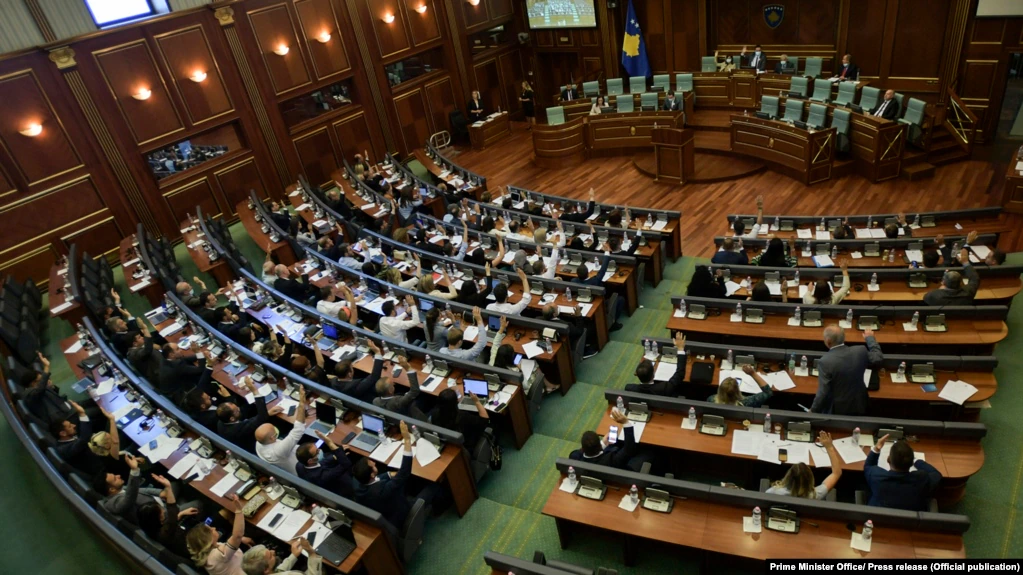On Thursday, the Assembly of Kosovo ratified the Compact Program agreement, which is expected to strengthen Kosovo’s energy independence.
The draft law on the agreement was approved by 89 votes in the Assembly.
International agreements are ratified in the Assembly with a two-thirds vote.
This approved agreement was signed on Wednesday in Washington by the Minister of Economy in Kosovo, Artane Rizvanolli, and the executive director of the Millennium Challenge Corporation (MCC), Alice Albright.
The total value of the Compact Program is $236.7 million and focuses on energy projects.
The Deputy Prime Minister of Kosovo, Besnik Bislimi, while presenting the draft law in the Assembly, said that the agreement provides “the largest one-time grant in the history of post-war Kosovo”.
“Through this project, we are aligning ourselves towards the decarbonisation of energy, following the example of our international partners and paving the way for Kosovo towards Euro-Atlantic integration”, said Bislimi.
The Compact Program consists of two projects and is considered the largest investment of the American Government in Kosovo.
The MCC aims to reduce poverty in Kosovo through economic growth with this program, as it is estimated that the unstable energy supply hinders economic growth.
The five-year grant foresees 202 million dollars of direct funds from the American Government, while the rest of the investments will be covered by the Government of Kosovo.
According to MCC director for Kosovo, Sarah Olmstead, the first procurement for Compact Program projects is expected to start in two years.
The President of Kosovo, Vjosa Osmani, said that with the signing of the Compact Program, the willingness of the United States to help Kosovo advance economically and have sustainable development is reconfirmed.
Osmani and the Prime Minister of Kosovo, Albin Kurti, were present when the agreement was signed.
What does the agreement provide?
The most important project is expected to be the Energy Conservation project. Through this project, Kosovo will have energy reserves through high capacity batteries of 170 megawatts. These batteries will make it possible to provide reserves of about 347 megawatts per hour.
Also, at the Compact Program level, close to 1.8 million people are expected to benefit from MCC’s investment. This estimate is based on the Energy Conservation Project, which aims to cover all households connected to the electricity grid – officially reported to be 100 percent of Kosovo households.
Within the framework of the Compact is the project for the Just Acceleration of the Transition (JETA) which has two primary objectives: to produce graduates who can be employed in the energy sector or similar sectors, as well as to increase the number of employed women in the energy sector, which participate in the Inclusive Workforce Activity in the Energy Sector.
This is expected to facilitate the energy transition led by the Government of Kosovo, creating the possibility that women who acquire the required skills, provide technical assistance to employers in the energy field and, in this way, increase their representation in this sector. .
Within the framework of the Compact Program, the American Development Catalyst Project (AFDC) will also be included. This project is designed to enable the use of funds from the US Development Finance Corporation (DFC), to support private investment in the energy sector in Kosovo, but also MCC’s goals in the energy sector.








